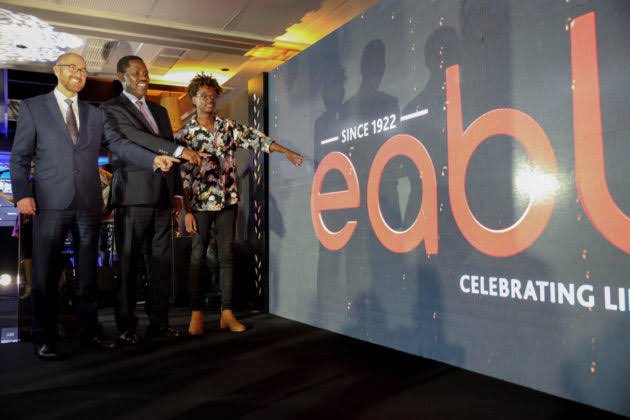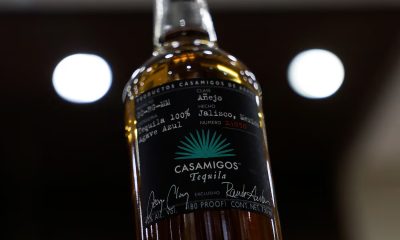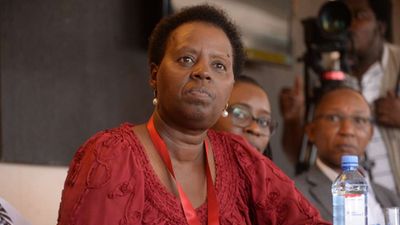Business
Diageo Eyes EABL Exit as African Divestment Strategy Intensifies
British drinks giant may offload its Sh100 billion stake in East African Breweries as part of sweeping $500 million cost-cutting drive.

Diageo Plc appears to be positioning East African Breweries Limited (EABL) as its next major divestment target, as the British multinational accelerates its retreat from African markets in pursuit of higher returns and reduced volatility.
The speculation has intensified following Diageo’s announcement of a $500 million cost-cutting programme and asset disposal plan, which chief financial officer Nik Jhangiani described as involving “opportunities for substantial changes” that would go “above and beyond the usual smaller brand disposals.”
Industry analysts are now pointing to EABL where Diageo holds a commanding 65 percent stake worth approximately Sh100 billion as the most likely candidate for divestment, given the company’s systematic exit strategy from African brewing operations.
The writing on the wall
The signs have been mounting for months. Since 2022, Diageo has methodically dismantled its African brewing empire, offloading stakes in Nigeria’s Guinness operation (58.02 percent), Ghana Breweries (80.4 percent), and Seychelles Breweries (100 percent).
Earlier exits from Ethiopia and Cameroon further underscore the company’s pivot away from the continent’s volatile markets.
“With Diageo plc leaning towards its rich spirit portfolio globally and its continued exit from beer in Africa, we begin to speculate on a likely strategic exit by the shareholder in EABL in the medium term,” Standard Investment Bank noted in a recent analysis.
The timing appears particularly strategic. EABL represents Diageo’s last major African brewing asset, and with the continent contributing just nine percent to the parent company’s global net sales, the financial logic of an exit becomes increasingly compelling.
Standard Investment Bank’s analysis suggests EABL could be significantly undervalued, estimating the subsidiary’s worth at $2.79 billion (Sh360.75 billion)—2.35 times its current market capitalization including debt. This valuation gap could create an attractive exit opportunity for Diageo while offering substantial upside for potential acquirers.
The irony is stark: just two years ago, Diageo invested Sh22.7 billion to increase its EABL stake from 50.03 percent to 65 percent.
That investment, which seemed to signal long-term commitment, now appears to have been a strategic consolidation ahead of a potential full exit—maximizing control and value extraction before divestment.
Market pressures mount
Diageo’s urgency stems from mounting investor pressure to improve returns amid sluggish global demand for alcoholic beverages.
The company faces the specter of structural decline that has plagued the tobacco industry, as younger consumers increasingly moderate their drinking habits.
The $500 million cost-cutting programme aims to generate sustainable annual free cash flow of $3 billion—up from $2.6 billion last year. Divesting capital-intensive brewing operations in volatile markets fits perfectly with this “asset-light” strategy focused on higher-margin spirits.
EABL’s attractive position
Despite the speculation, EABL remains an attractive asset.
The company’s recovery is evident in its recent performance, with net profit rising 19.6 percent to Sh8.1 billion in the six months ended December 2024. EABL shares have gained 8.3 percent year-to-date, reflecting investor confidence in the Kenyan market’s resilience.
The company’s portfolio includes culturally significant brands like Tusker, which holds deep market penetration in Kenya, alongside international brands like Johnnie Walker scotch whisky that benefit from Diageo’s global distribution network.
A successful EABL acquisition would require deep-pocketed investors, given the Sh100 billion valuation of Diageo’s stake alone. Potential suitors could include:
Regional Players: Other multinational beverage companies seeking African exposure, particularly those with established distribution networks in East Africa.
Private Equity: Firms specializing in consumer goods investments, attracted by EABL’s market position and growth potential in Kenya’s expanding middle class.
Strategic Investors: Companies seeking to enter the African market through an established platform with strong brand recognition and distribution capabilities.
Local Consortium: Kenyan investors or institutions seeking to nationalize a key economic asset, though the capital requirements would be substantial.
An EABL divestment would mark the end of Diageo’s significant African brewing presence, completing a strategic transformation that began with the company’s formation in 1997.
The move would also test Kenya’s appetite for foreign investment exits in key economic sectors.
For EABL employees and stakeholders, the speculation creates uncertainty about future strategic direction, investment levels, and brand portfolio management.
However, the company’s strong market position and recovering financial performance suggest it could thrive under new ownership with adequate investment.
Market watch
While Diageo has declined to comment on “market speculation,” the company’s systematic African exit strategy speaks louder than official statements. CFO Jhangiani’s emphasis on “substantial changes” to the portfolio, combined with the established pattern of African divestments, creates a compelling case for EABL’s eventual sale.
The question is no longer whether Diageo will exit EABL, but when and to whom. With the company’s “asset-light” strategy gaining momentum and investor pressure intensifying, the timeline for a potential transaction may be shorter than many anticipate.
For now, EABL continues operating as a key contributor to Diageo’s African operations, representing 46 percent of the region’s performance.
But as the British giant reshapes its global portfolio, Kenya’s flagship brewery may soon find itself under new ownership, marking the end of an era and the beginning of a new chapter in East African brewing.
Kenya Insights allows guest blogging, if you want to be published on Kenya’s most authoritative and accurate blog, have an expose, news TIPS, story angles, human interest stories, drop us an email on [email protected] or via Telegram
-

 Grapevine1 week ago
Grapevine1 week agoRussian Man’s Secret Sex Recordings Ignite Fury as Questions Mount Over Consent and Easy Pick-Ups in Nairobi
-

 News6 days ago
News6 days agoTHE FIRM IN THE DOCK: How Kaplan and Stratton Became the Most Scrutinised Law Firm in Kenya
-

 Investigations1 week ago
Investigations1 week agoMulti-Million Dollar Fraud: Three Kenyans Face US Extradition in Massive Cybercrime Conspiracy
-

 Economy6 days ago
Economy6 days agoIran Demands Arrest, Prosecution Of Kenya’s Cup of Joe Director Director Over Sh2.6 Billion Tea Fraud
-

 Business7 days ago
Business7 days agoA Farm in Kenya’s Rift Valley Ignites a National Reckoning With Israeli Investment
-

 Africa1 week ago
Africa1 week agoFBI Investigates Congresswoman Ilhan Omar’s Husband’s Sh3.8 Billion Businesses in Kenya, Somalia and Dubai
-

 Business2 weeks ago
Business2 weeks agoM-Gas Pursues Carbon Credit Billions as Koko Networks Wreckage Exposes Market’s Dark Underbelly
-

 Arts & Culture1 week ago
Arts & Culture1 week agoWhen Lent and Ramadan Meet: Christians and Muslims Start Their Fasting Season Together




























